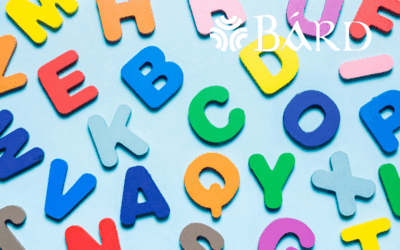Artificial intelligence (AI) is rapidly reshaping the digital workplace, therefore causing evolution of the role of the technical writer. The days when technical documentation was just manuals and how-to guides are far behind us. By the year 2030, to be a successful technical writer, you will need to embrace a new hybrid of skills, working on blending traditional strengths with strong data literacy, user experience design, and AI collaboration.
Throughout this article, we will explore the uncertain future of technical writing in the age of AI, including the essential skills you’ll need to stay relevant and thrive.
The evolution of technical writing in the AI era
The way technical writers work is already changing as a result of AI tools by automating repetitive tasks, generating content drafts, and streamlining workflows.
Despite what fears you may have, AI is amplifying writers capabilities and not replacing them. Due to this the job is shifting from purely content creation to include more skills, such as strategy, interpretation, and cross-functional collaboration.
When 2030 rolls around, technical writing will be much less about writing documents and more about designing intelligent content experiences.
1. Embracing hybrid roles: UX writing meets technical writing
The lines between technical writing, UX writing, and content design are blurring. If you want to succeed in the next decade as a technical writers, you must think like UX designers and write like product strategists.
Key Hybrid Skills:
- User-centric content design: Work on crafting content that anticipates user needs and integrates seamlessly into product interfaces
- Microcopy and UI content: Writing concise, clear instructions within software tools or apps
- Collaboration with design and dev teams: Working closely with UI/UX teams, product managers, and engineers
Hybrid roles within the world of technical writing are on the rise. Examples of these are UX Writer + Technical Writer or Content Strategist + Information Architect. Technical communicators who can adapt to these combinations will be in high demand within the next decade.
2. Data literacy: A must-have skill for modern writers
Within an AI powered workplace, data is no longer just for analysts. Data literacy will be a core competency for technical writers by 2030.
What This Means:
- Understanding analytics: Learning to interpret content performance metrics to improve documentation effectiveness
- Working with structured data: Using metadata, XML, and JSON to organize and manage modular content
- Writing for intelligent systems: Work to creating content that’s searchable, taggable, and compatible with AI-powered tools
Having good data literacy allows technical writer to make smarter, more intelligent content decisions and contribute well to product innovation.
3. Collaborating with AI—not competing against it
AI will augment a technical writer’s skills not replace their job. When writers embrace AI as a tool they will be better equipped to scale their content, automate repetitive documentation, and maintain consistency across large content ecosystems.
AI Collaboration Skills:
- Prompt engineering: The ability to craft effective inputs for AI tools like ChatGPT to generate first drafts or help translate content.
- Good Tool Proficiency: Navigating AI-driven platforms like Grammarly or document automation software.
- Content auditing: Using AI to identify gaps, redundancies, and opportunities for improvement
Developing the ability to guide AI, rather than just use it, will set expert technical communicators apart.
4. Core skills that remain essential
Regardless of all the technological advancements, some foundational skills in technical writing will remain truly timeless.
- Clear, concise communication
- Information architecture
- Audience analysis
- Attention to detail
- Strong grammar and editing skills
What’s changing is the context in which these skills are applied, often across multiple platforms, formats, and user types.
Future-proofing your career as a technical writer
If you are worried about your relevancy as a writer in 2030 and beyond, you should:
- Invest in continuous learning: Take courses in UX writing, data analytics, and content strategy
- Experiment with AI tools: Understand their strengths and limitations
- Build interdisciplinary skills: Learn basic UX design, scripting languages, or content modelling
- Network across roles: Collaborate with product teams, engineers, data scientists, and UX professionals
If you become a strategic content expert, not just a writer, you’ll forever remain a valuable contributor in the age of AI.
Final thoughts
The future of technical writing is forever evolving to be hybrid, data-driven, and AI-assisted. By 2030, the most successful technical writers will be those who garner the ability to evolve alongside technology, balancing human insight with mechanic efficiency, and storytelling with structured data.
Now is the time to upskill, adapt, and lead the next generation of content creation.



